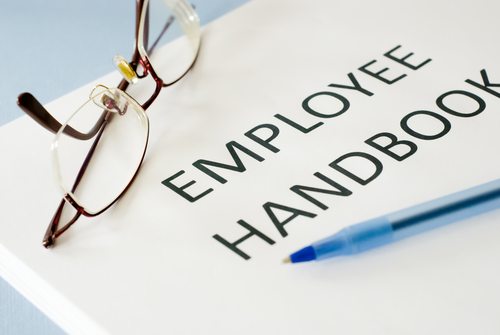We hate to discipline our children but we know it’s in their best interest to do so. We do our best to make sure we provide consistent discipline, especially when we have multiple children. The same philosophy applies to your dealership. As much as we hate the fact that we have to do it we need a process for handling disciplinary actions in the store. Everything from the annoyance of habitual tardiness to the most serious offenses like theft and harassment can be easier to handle once we know we have a policy in place we can follow. Having a discipline policy in place also takes the guesswork out of the equation for your managers.
What Kind of Policy Do I Need?
The best business discipline policy is a progressive discipline plan with increasingly severe steps based on the severity of the offense or on the failure to correct an offense. A key component of progressive discipline is that each disciplinary action is documented.
Even a verbal warning should be noted in the employee file with date, who issued the warning and the problem or offense that was addressed. All other steps should be written on dealership approved forms, signed by the supervisor and the employee, with a copy provided to the employee and the original retained in the employee file.
Most of us work in at will states (meaning you can fire at will) however too often we fire without sufficient documentation to record our sound reasoning and the steps that we took that got us to termination, therefore putting us at risk for lawsuits. If we put a progressive discipline system in place for all of our managers and team to follow we can eliminate some risk entirely, others we minimize. The bonus is that this same documentation can usually be adequate for unemployment compensation claims responses.
Why is a Discipline Policy Important?
Designing and implementing a progressive discipline policy takes the guesswork out of the “what do I do now” from a manager, allowing them to assess the issue and immediately select the correct discipline method.
For many performance issues and minor infractions, it’s best, to begin with verbal/counseling warning. This consists of meeting with the employee privately to discuss the concern. If you have documentation to support the infraction, like timesheets for tardiness, have it available. A manager should know how to address the issue with the employee and also outline the ongoing expectation as well as what will happen if the behavior continues. Once completed the verbal warning should be noted in the employee file.
If the behavior continues it may be necessary to move to a written warning, or if the infraction is more serious than a verbal warning warrants, you can begin with the written warning. A written warning should review the employee’s history as it relates to this issue. For example, if the written warning is on tardiness and the employee has had two verbal warnings those verbal warnings should be noted on the written warning. Additionally, your written warning should outline the issue, a statement as to your expectations on resolving the issue and consequences if it is not resolved. You should also provide the employee an opportunity to provide a statement about the issue if they wish. The written warning should be signed by both the employee and the supervisor covering the warning. A copy should be provided to the employee and the original goes in the employee file. You can repeat this step more than once if you deem it necessary or prudent.
The next step is suspension without pay. Before you use this you must have a written policy in place prior to imposing a disciplinary suspension. This form of progressive discipline can be used with non-exempt employees very easily. An employee can be sent home without pay for the rest of the day or for several days depending on the severity of the offense. The length of time should be consistent with all employees with similar situations.
Using a suspension without pay is slightly different with an exempt employee. An employer may impose in good faith an unpaid suspension for infractions of workplace conduct rules, such as rules prohibiting sexual harassment, workplace violence or drug or alcohol use or for violations of state or Federal laws. This provision refers to serious misconduct, not performance or attendance issues. The suspension must be imposed pursuant to a written policy applicable to all employees. It should be in full day increments only. This is one exception to the deduction rules. Meaning you can deduct pay from an exempt employee without their written authorization due to a suspension without pay disciplinary action.
The last step is also the last resort for resolving any issue and that is termination. Most businesses have a set of offenses they consider to be serious violations, like theft, that result in immediate termination of employment. But usually, termination is a last resort after all other efforts to correct behavior have been exhausted.
How Do I Make the Most of the Discipline Policy
Now how do you make the most of a progressive discipline policy to help your managers? Look at the last year of employee offenses that your managers have had to deal with in your store and map out the path you would like to have the offense follow. If you do this and train your managers as to how to evaluate each offense you take the guesswork out and apply a level of consistency that can only help minimize headaches and risk in your store.

